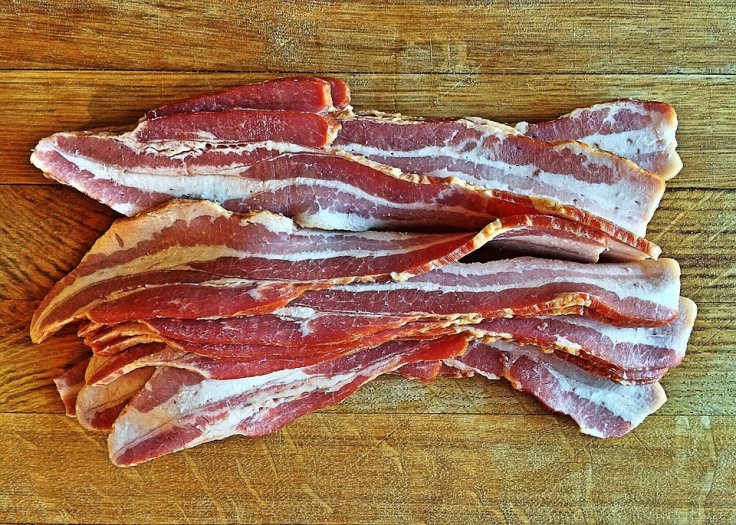
In the recent past, bacon lovers were quite heartbroken after World Health Organisation (WHO) experts revealed that eating processed meat, including bacon, can lead to bowel cancer. However, the food scientists have a good news for all bacon lovers as they have created a new type of bacon that has a reduced cancer risk.
According to WHO, processed meats like bacon, when cured with nitrites, produce carcinogenic nitrosamines when ingested. Apart from being used as a preservative, nitrites are used to provide colour, flavour, and texture.
Nearly 34,000 people around the world die every year due to bowel and colon cancer. This happens primarily because of diets high in processed meats.
British food manufacturers Finnebrogue collaborated with Spanish chemists and produced world's first bacon that doesn't include nitrites. "The problem with bacon is dead simple. Bacon contains nitrites, nitrites produce nitrosamines in your gut and nitrosamines are carcinogenic," Denis Lynn, chairman of Finnebrogue, said.
Lynn added: "Our Naked Bacon is not only safer than any other bacon on the market; it also tops the charts in blind taste tests."
Reports said that nitrite free bacon will be sold to people for the first time after spending over 10 years in developing the product.
Tory Neil Parish, Chairman of the Commons Environment, Food and Rural Affairs Select Committee told The Sun: "It's a remarkable feat of food technology and a brilliant British success story. This is further evidence that the British food industry is going from strength to strength."
"UK firms like Finnebrogue are producing some of the best food anywhere in the world.' Chris Elliott, chief of the Institute for Global Food Security, commented: 'Nitro containing compounds, used in the manufacture of traditional bacon, are known to cause the formation of chemicals that have negative health impacts," Neil Parish added.








